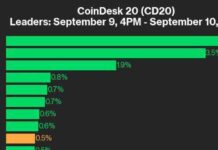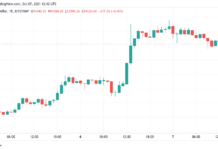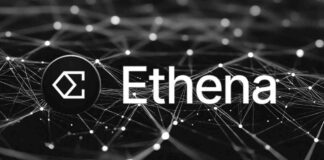Challenges Ahead for Solana ETFs in Current SEC Environment
The potential approval of a Solana (SOL) exchange-traded fund (ETF) in the United States faces significant obstacles in the current regulatory environment, according to Bloomberg ETF analyst Eric Balchunas. Balchunas expressed skepticism about the likelihood of a Solana ETF gaining approval this year, citing the need for a change in leadership at the Securities and Exchange Commission (SEC) as a crucial factor.
The Current Landscape
Despite active filings by issuers, including the Chicago Board Options Exchange (Cboe), for Solana ETFs, the SEC has not acknowledged the 19b-4 forms submitted. As a result, Cboe withdrew the forms, although the S-1 forms filed by the issuers remain active. The 19b-4 forms are crucial in providing essential information to the public about proposed rule changes, such as the listing of an ETF, while the S-1 form is necessary for issuers to offer new securities publicly.
Balchunas emphasized the slim chances of a Solana ETF approval in 2024, stating that even if Vice President Kamala Harris were to win the upcoming elections, the likelihood would remain minimal in 2025. He suggested that the only hope for approval in the near future would be if former President Donald Trump were to win the presidency.
VanEck’s Perspective
Despite the challenges faced by Solana ETFs, VanEck, a prominent investment firm, maintains its active application for a spot Solana ETF. In collaboration with 21Shares, VanEck filed applications for spot Solana ETFs in June, with a focus on the potential outcome of the upcoming elections. Matthew Sigel, head of digital assets research at VanEck, reiterated the firm’s view of SOL as a digital commodity rather than a security.
Sigel highlighted Solana’s decentralized structure, utility, and economic role, positioning it alongside digital commodities like Bitcoin (BTC) and Ethereum (ETH). VanEck’s belief in Solana’s potential commodity status serves as the basis for justifying its own US-traded spot ETF. However, the SEC’s stance on Solana’s security status remains a point of contention.
Regulatory Challenges
Bloomberg ETF analyst James Seyffart pointed out that the SEC has been actively asserting the security status of tokens like Solana, contrasting with the treatment of Ethereum. The regulatory uncertainty surrounding Solana was further highlighted by the SEC’s recent amendment in a lawsuit against Binance, aimed at avoiding a definitive classification of assets like SOL.
The SEC’s legal maneuver follows a court ruling that deemed secondary sales of digital assets, such as Binance’s BNB token, as not qualifying as securities. Binance has pushed back against the SEC’s approach, delaying discovery until the amended complaint is reviewed. The exchange has criticized the regulator’s premature classification of digital assets, adding to the complexity of the regulatory landscape.
Industry Perspectives
Industry experts and analysts continue to monitor the evolving regulatory environment surrounding Solana ETFs. The lack of clarity from the SEC regarding the classification of digital assets like SOL has raised concerns among market participants. The outcome of the ongoing legal battles and regulatory discussions will have a significant impact on the future of Solana ETFs in the US market.
In conclusion, the challenges faced by Solana ETFs in the current SEC environment underscore the complexities of navigating the regulatory landscape for digital assets. As industry stakeholders await further developments, the fate of Solana ETFs hinges on regulatory clarity, leadership changes, and ongoing legal proceedings within the cryptocurrency space.














